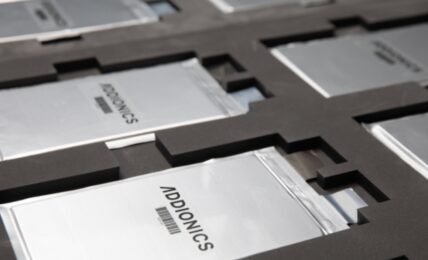The European Council announced today that it has approved the Net-Zero industry Act (NZIA), a new law introducing a framework of measures aimed at scaling up Europe’s manufacturing capacity for technologies key to achieving the EU’s climate goals.
The announcement marks the last major step in the adoption of the NZIA, following the European Parliament’s approval of the new regulations in April.
The NZIA was initially proposed by the European Commission in March 2023, forming one of the key elements of its Green Deal Industrial Plan strategy to enhance the competitiveness of Europe’s net zero industries, and supporting the EU’s transition to climate neutrality.
According to the EU Commission, the NZIA was launched as Europe currently imports the technologies necessary to reach its climate and energy objectives, and as major government initiatives globally heat up to grab a stake in the rapidly emerging market to facilitate the net zero transition. The race kicked into high gear with the passage of the U.S.’ Inflation Reduction Act, which allocated nearly $270 billion through a series of tax credits, loans, grants and subsidies to areas including renewable energy and industrial decarbonization solutions.
European Commission President Ursula von der Leyen said:
“With the Net-Zero Industry Act, the EU has now a regulatory environment that allows us to scale up clean technologies manufacturing quickly. The Act creates the best conditions for those sectors that are crucial for us to reach net-zero by 2050. Demand is growing in Europe and globally, and we are now equipped to meet more of this demand with European supply.”
Among the NZIA’s key measures are benchmarks for the EU to produce at least 40% of its annual deployment needs for the technologies necessary to achieve the EU’s climate and energy targets, such as solar panels, wind turbines, batteries and heat pumps, by 2030, and to capture 15% of the global market value for the technologies by 2040.
Thierry Breton, Commissioner for Internal Market, said:
“With the Net Zero industry Act, the EU aims to lead in the booming clean tech market – for the sake of our climate neutrality, but also for European competitiveness, jobs, energy security, and economic and political resilience. The NZIA sets ambitious objectives to multiply our clean tech manufacturing capacity by 2030. Because without industrial production, we risk becoming net importers, losing jobs, and re-creating dependencies that we do not wish to reproduce after the Russian gas experience.”
The new legislation supports a broad range of specific technologies, from solar photovoltaic and thermal technologies, onshore and offshore renewable energy, and batteries and storage, to heat pumps and geothermal energy, electrolyzers and fuel cells, biogas/biomethane, carbon capture and storage (CCS), nuclear power and grid technologies, and details a series of targeted actions to support their development in the EU, including streamlining permitting processes, and introducing sustainability and resilience criteria in public procurement and auctions, as well as setting up “Net-Zero Industry Academies” to support the development of a net zero skilled workforce. The NZIA also sets an objective to reach 50 million tonnes of annual CO2 injection capacity in EU geological storage sites by 2030.
The new law also includes measures aimed at supporting investments in workforce training and education, through the establishment of Net-Zero Industry Academies alongside a goal to train 100,000 workers within three years, and calls for the establishment of “regulatory sandboxes,” for testing innovative net-zero technologies under flexible regulatory conditions.
Additionally, the NZIA calls for the establishment of net-zero acceleration “valleys,” or areas concentrating several companies involved in specific technologies, in order to create clusters of net zero-focused industrial activity.
Kadri Simson, Commissioner for Energy, said:
“With the Net-Zero Industry Act, Europe will be well equipped with a stronger industrial base to achieve the clean energy transition. Through easier and faster permitting for manufacturing projects, support for innovation and skills and better market access for high-quality clean tech products, we will make sure European clean tech manufacturers can compete on a level playing field.”


